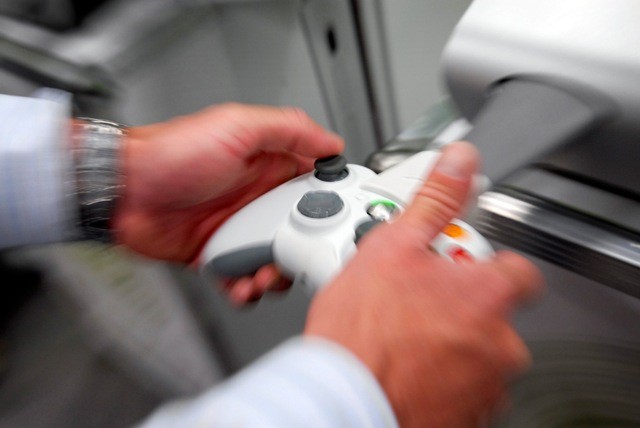|
These countries are in fact so small that it is difficult for them to achieve visibility in the global market – there are 40,000 game developers in the USA alone. The only way to remain competitive was therefore to join forces, so in 2006 the Nordic Game Programme was founded. Finnish company Neogames is one of the members of that Programme. The Nordic Council of Ministers supports the Programme to the tune of 1.5 million Euros, but this is not all that much when divided between five countries and more than 200 companies. Some additional funds are provided by game developers in each country, but only according to the services used. However, the Programme still manages to give considerable support to its members. Most of the companies that develop games have only 10-15 employees. Game development is a fairly new industry and it is difficult to obtain investment for it, as investors have little experience in this area. Being competitive means having the latest information about developments in the industry, but the smallest companies do not have the resources to gather this information. The same goes for organising training courses as well. Membership of the Nordic Game Programme allows small companies to participate in trade fairs and to make joint export plans. "This would be otherwise unaffordable for individual game developers, because renting a stand at one of the most high-profile trade fairs can cost as much as 250,000 Euros – nobody is willing to pay that sort of money. But together we can make ourselves visible," says Koopee Hiltunen, who is extremely positive about co-operation. In order to exchange information more effectively, the Programme organises annual Nordic Game Conferences, with 1,300-1,500 participants. Entrepreneurs regard these conferences a good place to exchange expertise. Together they can commission expensive studies and disseminate the results to members. Training courses are also organised jointly. "This co-operation has been very successful. Lobbying has brought us more investment from our governments. The Nordic Game Programme was set up for companies, and they expect genuine action from us. Doing is better than planning," says a resolute Hiltunen. According to Hiltunen, this co-operation has been facilitated by the fact that the participating countries have a similar business culture. "French clients, for example, think it entirely normal to pay invoices after 150 days, but in the Nordic countries I can be sure that within 15 days I will get paid or else be given an explanation about why the payment has been delayed," Hiltunen explains. It also helps that the common language of game developers is English. Openness is the key to co-operation and relationship management, Hiltunen emphasises. Uudis ilmus Loov Eesti 2010. aasta jaanuarikuu uudiskirjas. |
Nordic game developers receive three million Danish kroner in funding
|
Twice a year, the Programme offers entrepreneurs between 10,000 and 50,000 Euros in development funding. "Developing a simpler kind of game costs around 500,000 Euros, so the funding only covers up to 10 percent of the money required, but even this is beneficial for start-up projects and new developers," says Koopee Hiltunen, Director of Neogames, a Finnish game development organisation. Although Finland, Norway, Denmark, Sweden and Iceland combined have the second-highest number of people working in the games industry in the world (3,800 employees and more than 200 companies), with an annual turnover in excess of 300 million Euros, Hiltunen acknowledges that the Nordic countries individually are very small players, and therefore funding and co-operation are the keys to success. |

 Following a highly competitive screening process, a total of three million Danish kroner has been divided between eight games projects. In all, 84 funding applications were submitted to the Nordic Games Programme.
Following a highly competitive screening process, a total of three million Danish kroner has been divided between eight games projects. In all, 84 funding applications were submitted to the Nordic Games Programme.